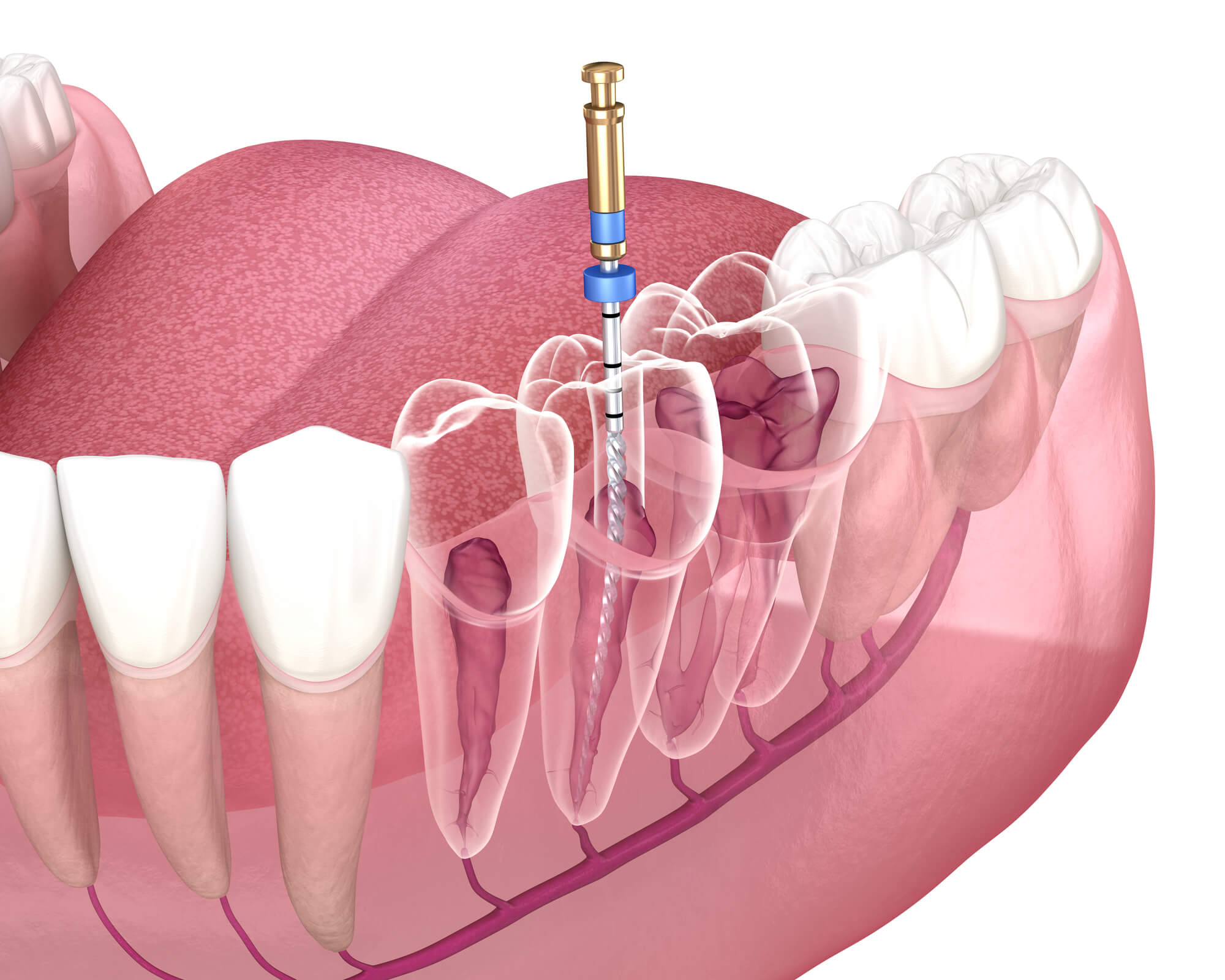Our teeth are incredibly important for not only chewing and speaking but also for our overall confidence. When a tooth becomes infected or severely inflamed, a root canal in Simpsonville, SC, can be a lifesaver, literally saving the tooth and alleviating the pain. But is this a guaranteed solution, or can root canals sometimes fail?

Root Canal Success Rates
Root canals are a highly successful dental procedure. Studies show success rates ranging from 86% to 98%, depending on the complexity of the case. This means the vast majority of root canals effectively eliminate the infection and preserve the tooth. However, it’s important to acknowledge that even with such high success rates, there’s always a possibility of failure.
Causes of Root Canal Failure
Incomplete Cleaning of Canals
One of the primary reasons for root canal failure is the incomplete cleaning of the root canals. The intricate anatomy of the tooth can include hidden or extra canals that might be missed during the procedure. If any infected tissue is left behind, it can cause a persistent or recurring infection.
Reinfection
Even after a successful root canal, the tooth can be vulnerable to reinfection. This can occur if the filling material breaks down over time or if the dental crown placed over the tooth becomes loose, allowing bacteria to re-enter the canal.
Cracks or Fractures
A tooth that has undergone a root canal can still develop cracks or fractures, especially if it is subjected to excessive force or pressure. These cracks can provide a pathway for bacteria to infiltrate the tooth and cause infection.
Issues with the Restoration
After a root canal, it’s important to place a crown or other restoration to protect the tooth right away. Delaying this step can expose the tooth to new infections or structural damage. On the other hand, a loose or ill-fitting crown can allow bacteria to infiltrate the tooth, compromising the entire procedure.
Substandard Materials or Techniques
The success of a root canal largely depends on the skill of the dentist and the quality of materials used. Poor techniques or substandard materials can compromise the integrity of the treatment.
Recognizing Symptoms of Root Canal Failure
It’s important to recognize the symptoms that may indicate a root canal has failed. These symptoms can include:
- Pain and Sensitivity: While some discomfort after a root canal is normal, persistent pain, throbbing sensations, or sharp twinges when chewing could indicate an issue.
- Swelling and Tenderness: Inflammation and gum sensitivity near the treated tooth are signs of potential infection. A visible bump on the gum tissue might also be present.
- Discoloration: A root canal treated tooth can sometimes darken or become discolored over time. This can be a sign of underlying infection or blood vessel issues.
- Drainage: Pus oozing from the gum around the tooth is a strong indicator of infection and requires immediate dental attention.
Solutions and Treatments for Failed Root Canals
If a root canal fails, there are several options available to address the problem:
Retreatment
Retreatment involves reopening the tooth, removing the previous filling materials, cleaning the canals thoroughly, and then refilling and sealing them. This procedure can address any issues that were missed during the initial treatment.
Apicoectomy
In cases where retreatment is not feasible, an apicoectomy might be performed. This surgical procedure involves removing the tip of the tooth’s root along with any infected tissue. A filling is then placed to seal the end of the root.
Extraction and Replacement
If the tooth cannot be saved, a tooth extraction may be the only option. After extraction, the missing tooth can be replaced with a dental implant, bridge, or partial denture to restore function and aesthetics.
Preventing Root Canal Failure
While there’s no guaranteed way to prevent a root canal from failing, proactive measures can significantly reduce the risk. Here are some key practices:
- Choose a Skilled Dentist: Ensure a qualified and experienced dentist or endodontist performs your root canal.
- Follow Post-Treatment Care Instructions: Adhere to your dentist’s advice on caring for your treated tooth, including avoiding chewing on hard objects and maintaining good oral hygiene.
- Early Intervention: If you experience any tooth pain or sensitivity, don’t delay seeking dental care. Addressing issues early can prevent the need for a root canal altogether.
- Protect Your Teeth: If you participate in contact sports or activities that could cause dental trauma, consider wearing a mouthguard for protection.
- Crown Care: If you have a crown placed on a root canal treated tooth, practice good oral hygiene to maintain a tight seal and prevent future problems.

Get Peace of Mind with Root Canals in Simpsonville, SC
Concerned about root canal success? Pelham Links Dentistry prioritizes thorough cleaning and advanced techniques for lasting results. Schedule your consultation today!


